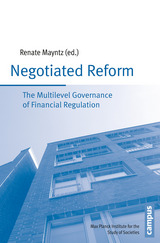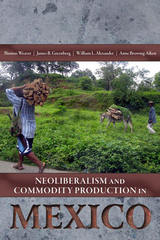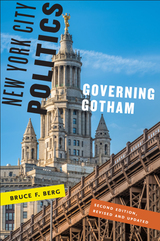11 start with N start with N

In National Saving and Economic Performance, edited by B. Douglas Bernheim and John B. Shoven, that task is addressed by offering the results of new research, with recommendations for policies aimed to improve saving. Leading experts in diverse fields of economics debate the need for more accurate measurement of official saving data; examine how corporate decisions to retain or distribute earnings affect household-level consumption and saving; and investigate the effects of taxation on saving behavior, correlations between national saving and international investment over time, and the influence of economic growth on saving.
Presenting the most comprehensive and up-to-date research on saving, this volume will benefit both academic and government economists.


This book is about the links that tie resource use, environmental quality, and economic development, and the way in which those links are affected by the distribution of income and resource ownership. The links may be relatively simple, as in the case of peasant farmers too poor to conserve resources for the future and with nothing to gain from sound environmental practices. Or they may be very complex—as the authors find when they demonstrate how achievement of higher incomes by the rich can increase environmentally destructive behavior by the poor. Many of the links in some way involve rural land use, whether for agriculture or forestry. Natural Resource Policymaking in Developing Countries argues that the policies that matter are not merely those dealing with resources and the environment, but a much broader set that includes income distribution and asset ownership.


Detailed ethnographic fieldwork shows how foreign investment, privatization, deregulation, and elimination of welfare benefits have devastated national industries and natural resources and threatened agriculture, driving the campesinos and working class deeper into poverty. Focusing on specific commodity chains and the changes to production and marketing under neoliberalism, the contributors highlight the detrimental impacts of policies by telling the stories of those most affected by these changes. They detail the complex interplay of local and global forces, from the politically mediated systems of demand found at the local level to the increasingly powerful municipal and state governments and the global trade and banking institutions.
Sharing a common theoretical perspective and method throughout the chapters, Neoliberalism and Commodity Production in Mexico is a multi-sited ethnography that makes a significant contribution to studies of neoliberal ideology in practice.

Networked Business and Politics in Decentralizing Indonesia evaluates three cases of deep-seated political conflict and intrigue including central government, local governments, and multinational companies. It looks at how the structure of the national political economy has changed as the result of local politicians becoming involved in disputes with the national government over control of natural resources. It also analyzes how these changes will affect the distribution of wealth in the country as well as Indonesia’s evolving democratic politics and modes of governance.

A Foreign Affairs Best Book of the Year
A BBC History Magazine Best Book of the Year
“Excellent…A fascinating, authoritative account of the paths for China’s future explored during a decade long buried by official, state-sponsored history.”—Julia Lovell, Foreign Policy
“A vivid and readable account…Exceptionally well-researched.” —Andrew Nathan, Foreign Affairs
"The definitive book on China in the 1980s in terms of the depth of research and originality of the argument." ―Minxin Pei, author of The Sentinel State
"A gift to our understanding of today’s China."―Evan Osnos, author of Age of Ambition
On a hike in Guangdong Province in January 1984, Deng Xiaoping was warned that his path was a steep and treacherous one. “Never turn back,” the Chinese leader replied. That became a mantra as the government forged ahead with reforms in the face of heated contestation over the nation’s future.
Recovering the debates of China in the 1980s, Julian Gewirtz traces the Communist Party’s diverse attitudes toward markets, state control, and sweeping technological change, as well as freewheeling public argument over political liberalization. Deng Xiaoping’s administration considered bold proposals from within the party and without, but after Tiananmen, Beijing systematically erased these discussions of alternative directions. Using newly available Chinese sources, Gewirtz details how the leadership purged the key reformist politician Zhao Ziyang, quashed the student movement, recast the transformations of the 1980s as the inevitable products of consensus, and indoctrinated China and the international community in the new official narrative.
Never Turn Back offers a revelatory look at how different China’s rise might have been and at the foundations of strongman rule under Xi Jinping, who has intensified the policing of history to bolster his own authority.

After the collapse of communism in the Soviet Union and eastern Europe, more than a dozen countries undertook aggressive privatization programs. Proponents of economic reform championed such large-scale efforts as the fastest, most reliable way to make the transition from a state-run to a capitalist economy.
The idea was widely embraced, and in the span of a few years, policymakers across the region repeatedly chose an approach that distributed vast amounts of state property to the private sector essentially for free-despite the absence of any historical precedent for such a radical concept. But privatization was not a panacea. It has, instead, become increasingly synonymous with collusion, corruption, and material deprivation.
Why was privatization so popular in the first place, and what went wrong? In answering this question, Hillary Appel breaks with mainstream empirical studies of postcommunist privatization.
By analyzing the design and development of programs in Russia, the Czech Republic, and across eastern Europe, Appel demonstrates how the transformation of property rights in these countries was first and foremost an ideologically driven process. Looking beyond simple economic calculations or pressure from the international community, she argues that privatization was part and parcel of the foundation of the postcommunist state.
A New Capitalist Order reveals that privatization was designed and implemented by pro-market reformers not only to distribute gains and losses to powerful supporters, but also to advance a decidedly Western, liberal vision of the new postcommunist state. Moreover, specific ideologies-such as anticommunism, liberalism, or nationalism, to name but a few-profoundly influenced the legitimacy, the power, and even the material preferences of key economic actors and groups within the privatization process.

In June 1990, Ecuador saw the first major indigenous rebellion within its borders since the colonial era. For weeks, indigenous protesters participated in marches, staged demonstrations, seized government offices, and blockaded roads. Since this insurrection, indigenous movements have become increasingly important in the fight against Latin American Neoliberalism.
Roberta Rice's New Politics of Protest seeks to analyze when, where, and why indigenous protests against free-market reforms have occurred in Latin America. Comparing cases in Ecuador, Peru, Bolivia, and Chile, this book details the emergence of indigenous movements under and against Neoliberal governments. Rice uses original field research and interviews with indigenous leaders to examine long-term patterns of indigenous political activism and overturn accepted theories on the role of the Indian in democracy.
A useful and engaging study, The New Politics of Protest seeks to determine when indigenous movements become viable political parties. It covers the most recent rounds of protest to demonstrate how a weak and unresponsive government is more likely to experience revolts against unpopular reforms. This influential work will be of interest to scholars of Latin American politics and indigenous studies as well as anyone studying oppressed peoples who have organized nationwide strikes and protests, blocked economic reforms, toppled corrupt leaders, and even captured presidencies.

New York City Politics focuses on the impact of these three forces on the governance of New York City’s political system including the need to promote democratic accountability, service delivery equity, as well as the maintenance of civil harmony. This second edition updates the discussion with examples from the Bloomberg and de Blasio administrations as well as current public policy issues including infrastructure, housing and homelessness, land use regulations, and education.

New York City Politics focuses on the impact of these three forces on the governance of New York City’s political system including the need to promote democratic accountability, service delivery equity, as well as the maintenance of civil harmony. This second edition updates the discussion with examples from the Bloomberg and de Blasio administrations as well as current public policy issues including infrastructure, housing and homelessness, land use regulations, and education.
READERS
Browse our collection.
PUBLISHERS
See BiblioVault's publisher services.
STUDENT SERVICES
Files for college accessibility offices.
UChicago Accessibility Resources
home | accessibility | search | about | contact us
BiblioVault ® 2001 - 2024
The University of Chicago Press









